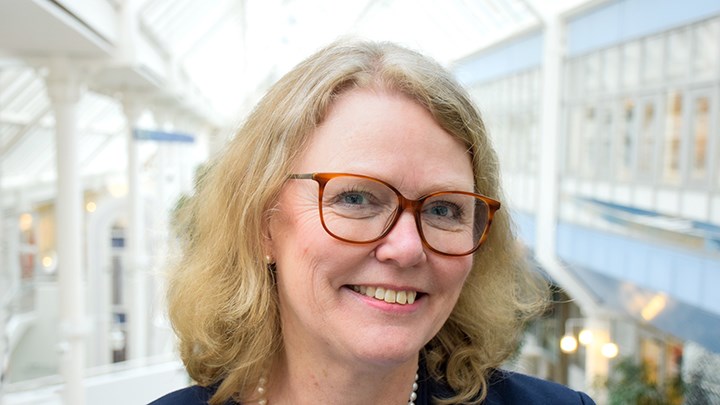Agneta Anderzén Carlsson – new professor 2025

Agneta Anderzén Carlsson är adjungerad professor i omvårdnadsvetenskap. Foto: Elin Abelson
Agneta Anderzén Carlsson is adjunct professor of nursing science.
She is the paediatric nurse who ended up on the doctoral programme by chance.
“It was never my plan to become a researcher or professor, but here we are. The work is fun and stimulating and I learn new things almost every day,” she says.
1966 Born in Oxelösund
2007 Obtained her PhD in medicine with her thesis Children with Cancer – Focusing on their fear and on how their fear is handled, Örebro University
2014 Docent in medical science with a healthcare sciences specialisation, Örebro University, and affiliated researcher, School of Health Sciences, with a disability studies specialisation (now disability research), Örebro University
2017 Professor of nursing, Karlstad University
2022 Professor II, University of Inland Norway
2024 Adjunct professor of nursing science, Örebro University
In her PhD research, Agneta Anderzén Carlsson used qualitative methods and has primarily continued to do so ever since. Her thesis focuses on children with cancer and the fear they can experience when they become ill.
“The fear they felt was not only linked to the treatment, but also to existential questions, experiences in relation to healthcare staff, and to relationships with friends.”
Following her PhD, Agneta Anderzén Carlsson broadened her research field to include other patient groups.
For a few years, she was a senior lecturer at Örebro University, teaching on the nursing programme and the specialist nursing programme for paediatric care. She then took up a position as research leader at Region Örebro County’s University Healthcare Research Centre (UFC).
For a few years, she divided her time between UFC and the Audiological Research Centre at Örebro University Hospital.
“I got into research focusing on people with deafblindness, their health and life situation and it became a key research interest for me.”
Agneta Anderzén Carlsson’s interest in matters relating to deafblindness led to a long-term collaboration with the Swedish National Resource Centre for Deafblindness (NKCdb).
Her role at UFC includes supervising doctoral students and over the years, Agneta Anderzén Carlsson has gained broad experience of various research areas within health and medical care – mainly from a caring science perspective.
In many projects, researchers work across professional boundaries.
“Currently, my main research interests are health and medical care for children and adolescents – and the health and life situation of those living with deafblindness. But I do like to contribute to other projects as well.”
Agneta Anderzén Carlsson is a senior researcher in a research group within Disability Research at Örebro University.
“It involves research on deafblindness from a multidisciplinary perspective. The research group is working on two large, nationally funded projects. One studies the life situation and services during the COVID-19 pandemic. The other study aims at identifying a suitable approach for evaluating a support programme for people with deafblindness.”
Children must be heard
Agneta Anderzén Carlsson is also leading a PhD project in which a patient survey for children has been translated and validated. The project is a collaboration with researchers at Great Ormond Street Hospital for Sick Children in London. The goal is for the adapted surveys to be used in clinical practice so that children can have a say about their healthcare experiences.
Agneta Anderzén Carlsson has a three-year appointment as professor II at University of Inland Norway, linked to a master’s programme for nurses working with health promotion with children and families in a municipal setting.
“Working in another country has been very educational, even though I work remotely for the most part. There are many similarities but also differences between Swedish and Norwegian higher education institutions, for instance, when it comes to research funding and legislation on research ethics,” she says.
